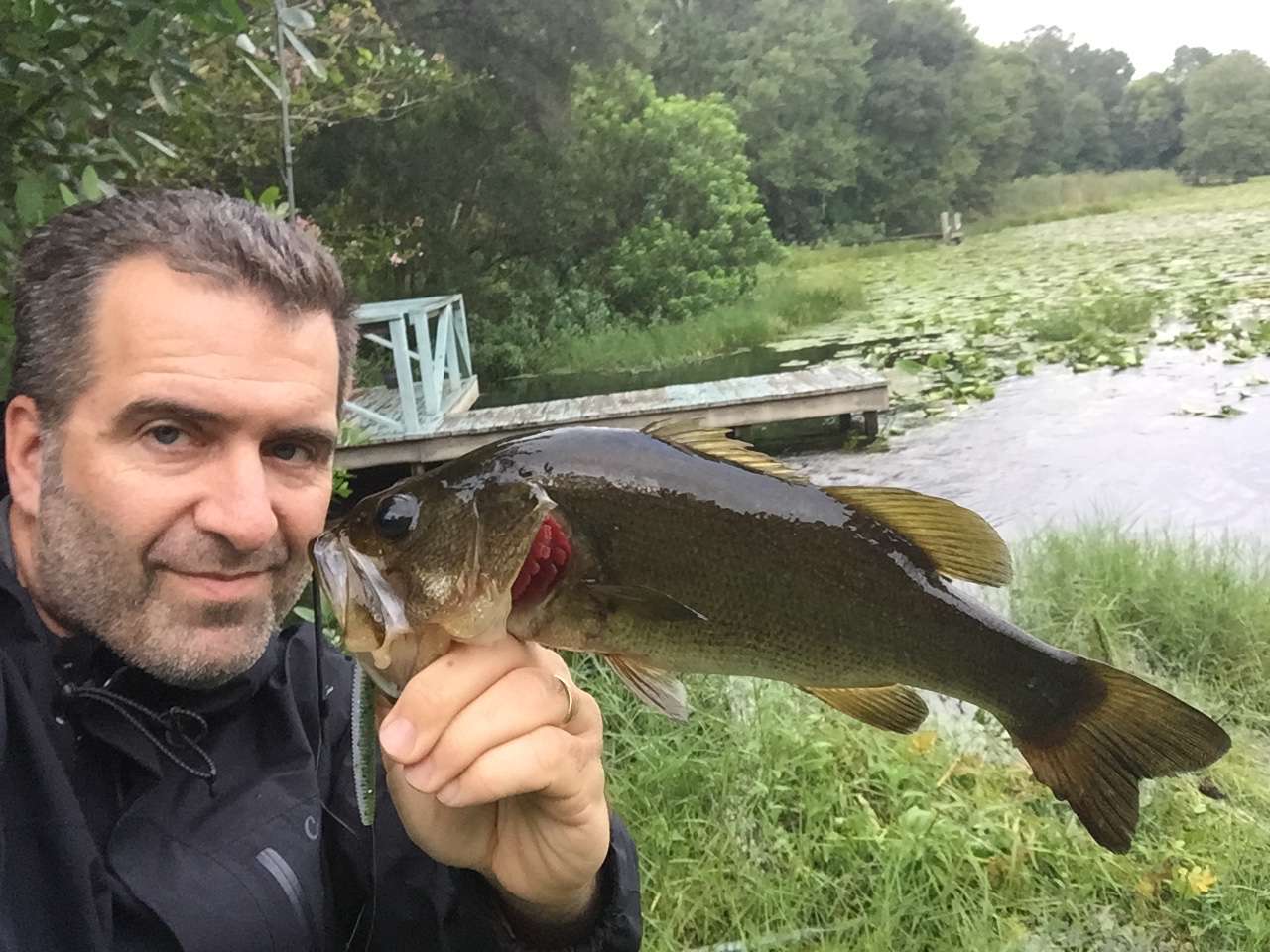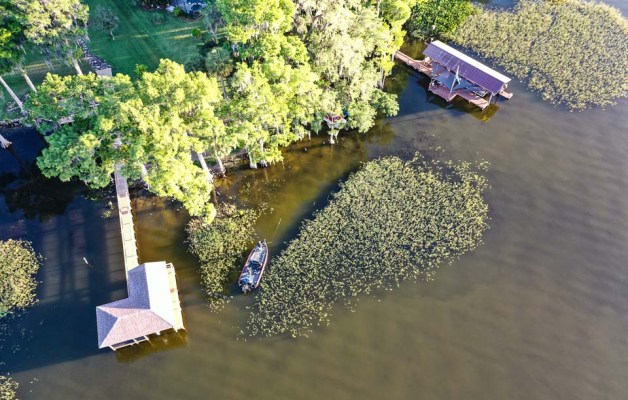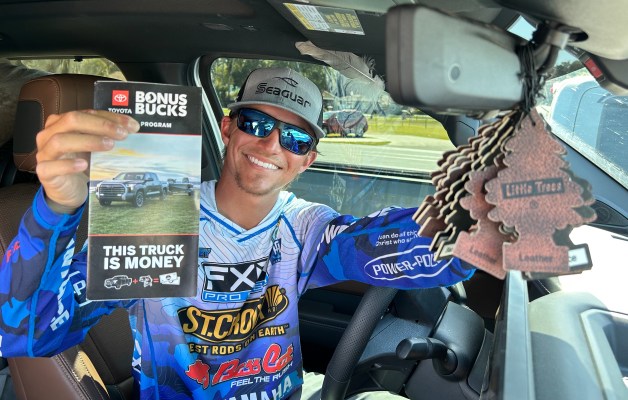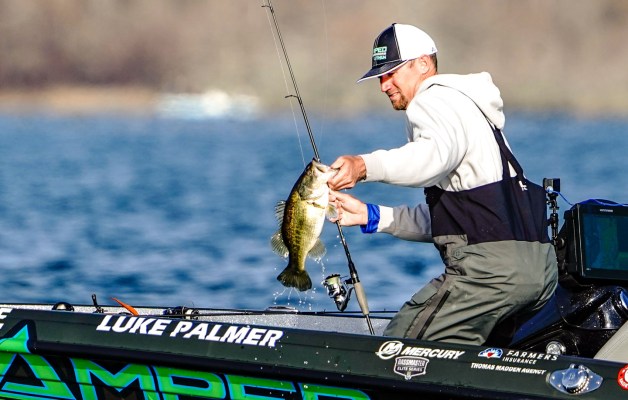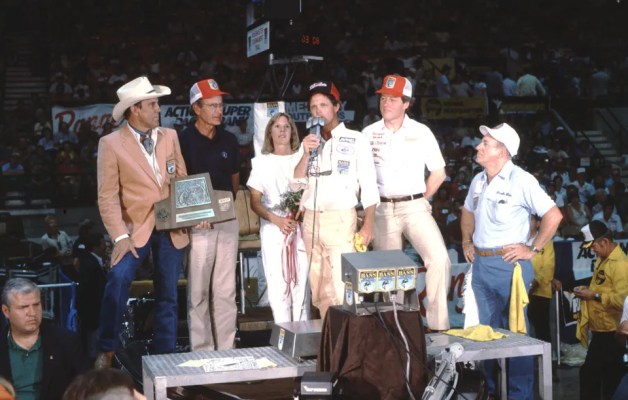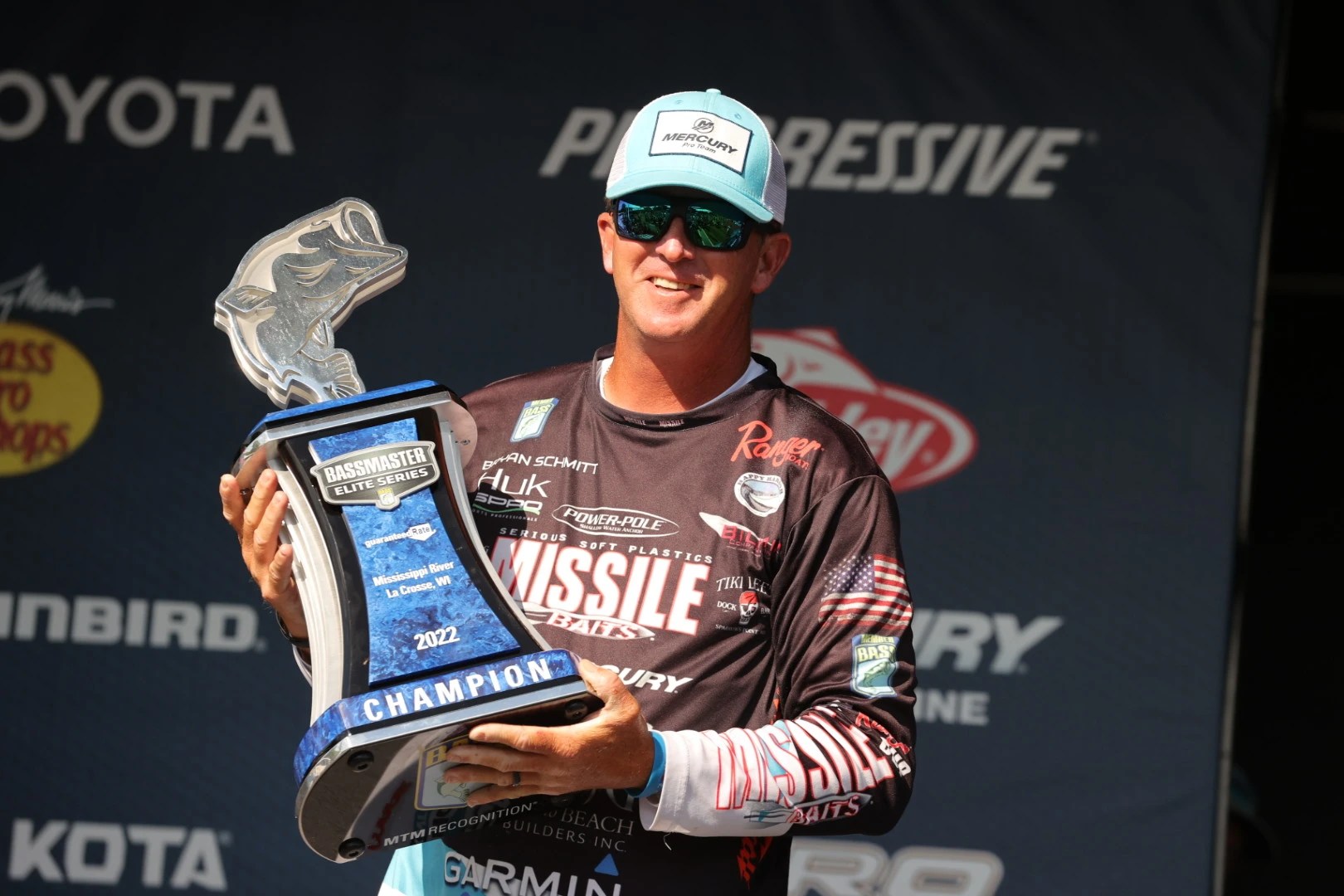
The toughest part about humble beginnings — the callous, unfair comparisons — can impede or inspire. Bryan Schmitt chose the latter.
For clarity, that’s two-time Bassmaster Classic qualifier Bryan Schmitt.
It all started circa 1997 when a tall kid from Deale, Md., was so inspired by the tales and images he found in Bassmaster Magazine and The Bassmasters TV show that he decided to learn the game, and do it by any means necessary.
Funds were tight and Schmitt’s budget only allowed the most modest of vessels; one that would launch his career, while helping mold the shallow-water expert he became.
The inflatable dream
“I started fishing out of a small yellow and blue Suncoast inflatable boat,” Schmitt said. “It could not have been 10 feet. I remember taking a buddy one time, and we were practically sitting on each other’s lap.
“I had to pull up to the ramp, lay it out and blow it up every time I went fishing. I had a trolling motor bracket that I would put on and a 45-pound thrust electric motor, and that was my rig.”
In those early days of his bass fishing addiction, Schmitt knew his ladder started at the bottom rung, so despite the frequent scoffing he overheard at local boat ramps, he remained undeterred.
“It was embarrassing at times, but I was able to get on the water,” Schmitt said. “There were times I’d pull up to a ramp and there would be these guys in these beautiful boats and I was blowing up my little boat. I would hear little comments like ‘Look at this guy over here.’
“I got a little bit of hazing, but that made me hungrier. It was fuel for the fire.”
Onward and upward
Flash forward two and a half decades and Schmitt’s mantel holds a pair of Elite Series trophies — one from Lake Champlain (2021) and another from the final event of the 2022 season at La Crosse, Wis. The steps in between are well worth the telling.
“After a couple of years in the inflatable boat, I graduated to a 12-foot johnboat with an electric motor,” Schmitt said. “I would slide it into the back of my truck, tie it off with my tailgate down and strap down the motor. That carried me around for a long time.”
In 2000, Schmitt stepped aboard his first fiberglass bass boat, a 16-foot Cajun with a Johnson 115 horsepower outboard. Notwithstanding the pride of ownership, he now admits to a questionable platform.
“That boat should not have been on the water,” Schmitt chuckles. “I paid $2,000 for that rig, and I know I put $5,000 into it, just to be able get it to the water and fish a couple of days — and that was a lot of money for me.
“It needed wires for the trailer and the whole nine yards (of repairs). It was epically bad, but what was cool about that first bass boat was it got me going. It was sturdier, and now I was standing up fishing from the front of a boat.”
Lessons learned
It wasn’t the fastest sled on the slope, and it wasn’t going to win any best-of-show awards, but this boat, just like that yellow and blue inflatable, helped open the door.
“I joined a local club and, by blind luck, I won it out of that 16-foot Cajun boat,” Schmitt said. “Then, I spent two years in this club getting my butt kicked every tournament.
“I was just soaking it all in and learning, and then I started doing better. But that boat was a big deal for me.”
A key element of the Schmitt story is the sincere appreciation for just the chance at pursuing the vision that projected from his heart and into his head.
“Everybody takes a different path, but I knew early on that I was in love with this sport,” Schmitt said. “I wasn’t fortunate enough to have a beautiful bass boat with modern equipment. Back then, I didn’t have GPS, so just learning how to navigate was challenging.
“I think that really trained me for this humble course. I’m thankful to have made it, and I have a don’t-take-it-for-granted mentality.
We’ve all heard the wise statement that success is not a destination; it’s a journey. Schmitt’s path from a blow-up boat to the Bassmaster Classic embodies this truth.
“It was a long road, and I will never say it was easy,” he said. “It’s not for everybody. There are so many times when you’ll think, ‘This might not be the right thing,’ because you’re going to get your butt kicked, things are going to break and it doesn’t go right so many times. But it worked out.”
Learning the sport
So, how far could Schmitt go in that inflatable boat? By his admission, he probably pushed his range farther than he should have.
“I only fished smaller ponds and reservoirs; I was cautious of rough water, and I never fished big lakes,” Schmitt said. “I’d go for miles and sometimes, I’d go so far my battery would run out of juice.
“I would try to take another battery on the boat, but then I’d be worried it’s too much weight. It was sketchy.”
Today, Schmitt has tremendously more range, speed and stability in his Mercury-powered Ranger, but while the ride has changed, some things have not.
“Today, guys that I know pretty well on the trail like Bryan New, are always teasing me that I go very far away; I always start practice very far away,” Schmitt said of his long-distance tendency. “In my mind, the logic is getting away from fishing pressure always makes the scenario better.”
That being said, distance was not the only measurement that a young Schmitt pushed. He also found his lightweight, low-profile inflatable could reach deep into the skinny stuff.
“That small blow-up boat with the trolling motor was so quiet, I was able to access really shallow water and be really quiet,” Schmitt said. “That taught me the importance of stealth — just being quiet in shallow water.
“I was able to creep around, really stealthy, and visually see bass that didn’t react, because they didn’t sense my presence. Now when I find a shallow area that I think has some fish, I really take my time to really capitalize on being quiet.”
Classic dream
Looking back, Schmitt recalls catching several 5-pounders from his inflatable boat. Quality and quantity potential naturally increased as he advanced to the johnboat and that 16-foot Cajun. Thoughts of where it all might lead were ambitious, but Schmitt said bass fishing’s biggest stage seemed out of reach.
“In some form, I would say yes, I envisioned myself someday standing on the Classic stage,” Schmitt sad. “I was reading the magazine and seeing the TV show. The dream was there, but it felt so unachievable at that time.
“That was the Holy Grail, such a far-fetched dream. Did I want it? Absolutely, but I felt like it was impossible to do. Those guys (I used to watch and read about) knew so much more.”
That was then. Today’s Bryan Schmitt has complemented his pair of Elite trophies with as many Classic qualifications. The best part about his story of humble beginnings is the relatability.
“Whenever I see someone starting out like I did, I take time to talk to them and encourage them,” Schmitt said. “I tell them the boat doesn’t make you who you are.”
Schmitt even had the opportunity to show some love for a couple of small boaters at the 2020 Elite Series event on Santee-Cooper, when he towed a disabled johnboat to the ramp.
“Sometimes, if you start with the best of everything, you don’t appreciate it,” Schmitt said. “I started out very humbly and that gave me the appreciation to make the most of everything I have.”
They used to laugh at Schmitt. Now, he owns two blue trophies, and he’s fishing for the sport’s biggest.
They’re not be laughing anymore.

